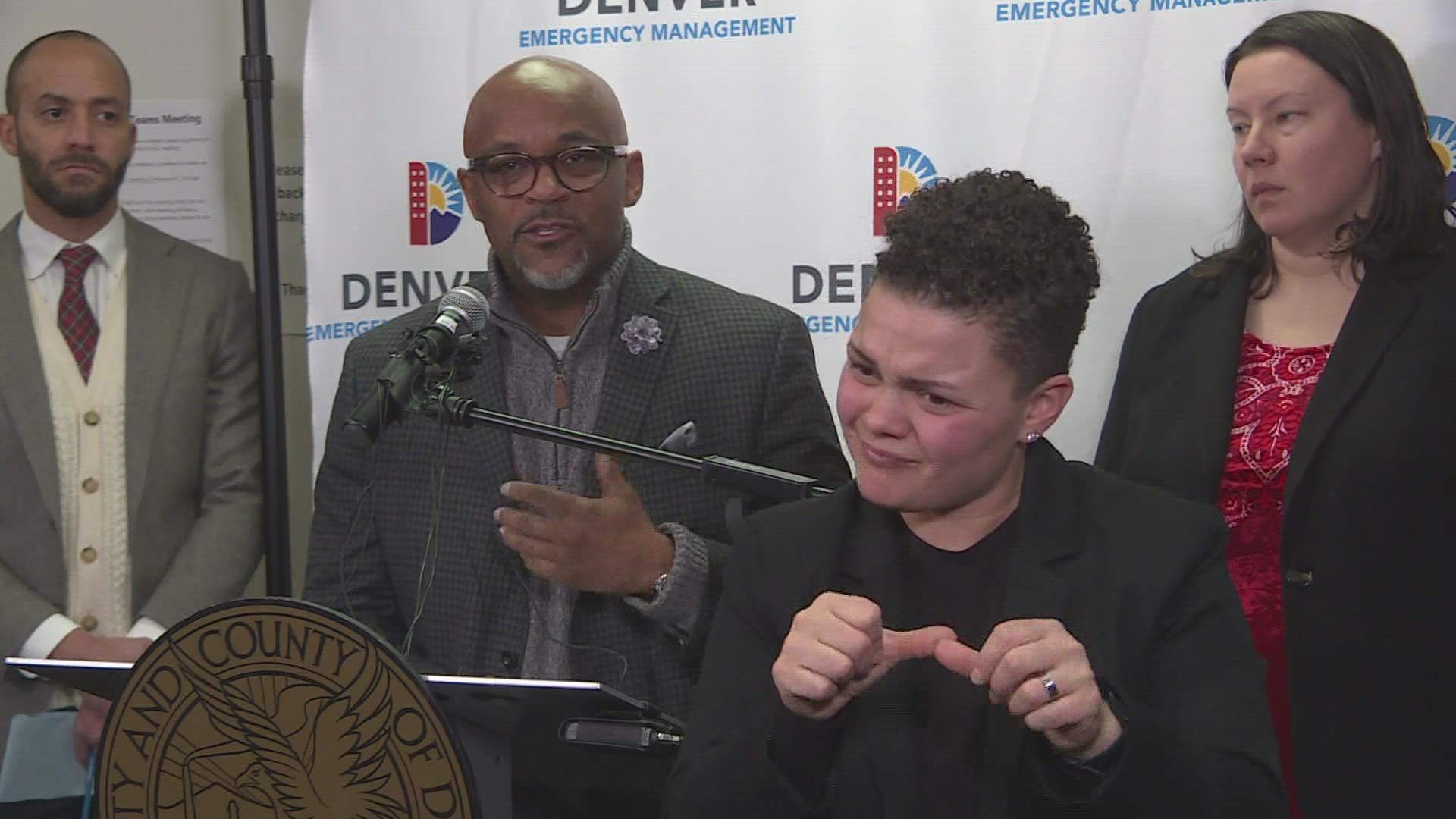DENVER — Mayor Michael Hancock gave an update Wednesday on Denver's plans to deal with extreme cold weather that hit the state starting Wednesday night, as migrants continue to arrive in the city.
The city opened a 24/7 warming shelter at the Denver Coliseum, at 4600 Humboldt St., beginning at 3 p.m. Wednesday for those experiencing homelessness, for migrants arriving in Denver and for the general public.
The Coliseum warming center can accommodate 225 people and will remain open at least through Saturday. City officials said they were working with partners on overflow centers if the Coliseum reaches capacity.
> Watch the full update:
Temperatures are dangerously cold after a front bringing arctic air arrived in Denver on Wednesday evening. Extreme temperatures are dangerous, especially combined with other health conditions, and can lead to a higher risk of hypothermia, frostbite and carbon monoxide poisoning.
Severe weather poses a particularly serious danger to anyone spending an extended period of time outside, including people experiencing homelessness who are unsheltered. The Department of Housing Stability and its partners are conducting outreach to unhoused residents.
"I encourage everyone to stay inside, to seek shelter and to limit time outdoors," Hancock said.
Denver recreation centers and libraries will also be available during regular hours for people to warm up, Hancock said.
The new temporary warming shelter comes after the city began using two Denver recreation centers as emergency shelters for hundreds of migrants who have arrived in the city over the past few weeks. The city declared a state of emergency in hopes of getting more resources to help an already overwhelmed effort.
As of Wednesday morning, 1,321 migrants have arrived in Denver since the start of December, Hancock said.
Hancock said he's spoken with state and federal officials, as well as other mayors across the country who are raising the red flag on the number of migrants arriving in their cities.
He said there could come a point when Denver will hit its limit on resources to help arriving migrants – on both shelter capacity and finances – and city officials will have to be honest about saying they can't do more.
“There will come a time I hope that people will understand ... we are going to have to make a call based on the resources we have available,” Hancock told reporters.
"We don’t know what that looks like. We’re trying to discuss and imagine scenarios what that might look like ... But obviously we want to be humane as possible to accommodate those who are not only coming in as migrants but those who are unhoused in our city."
On Tuesday, Denver requested $1.5 million from the Colorado Department of Local Affairs to help fund its migrant response.
"We are at a breaking point," Hancock said. "... Not only are we worried about people being outdoors at this time, but we are at a breaking point on resources and our ability to accommodate people."
Mimi Scheuermann, chief operating officer of Denver's human services department, said the city estimates about 50% to 60% of the migrants who have arrived so far plan on leaving the city of Denver to connect with family or opportunities in other parts of the country. But winter weather is getting in the way.
“Our buses are getting canceled yet again because of weather in other places, so people who did have a plan to move on are staying put for now," Scheuermann said.
Overnight, 110 more migrants arrived in the city, according to data provided by the city. As of Wednesday, 780 migrants were housed in the two temporary emergency shelters in recreation centers and other emergency shelters established by nonprofits across the city.
This story includes previous reporting by Laura Casillas.
SUGGESTED VIDEOS: Severe Weather

